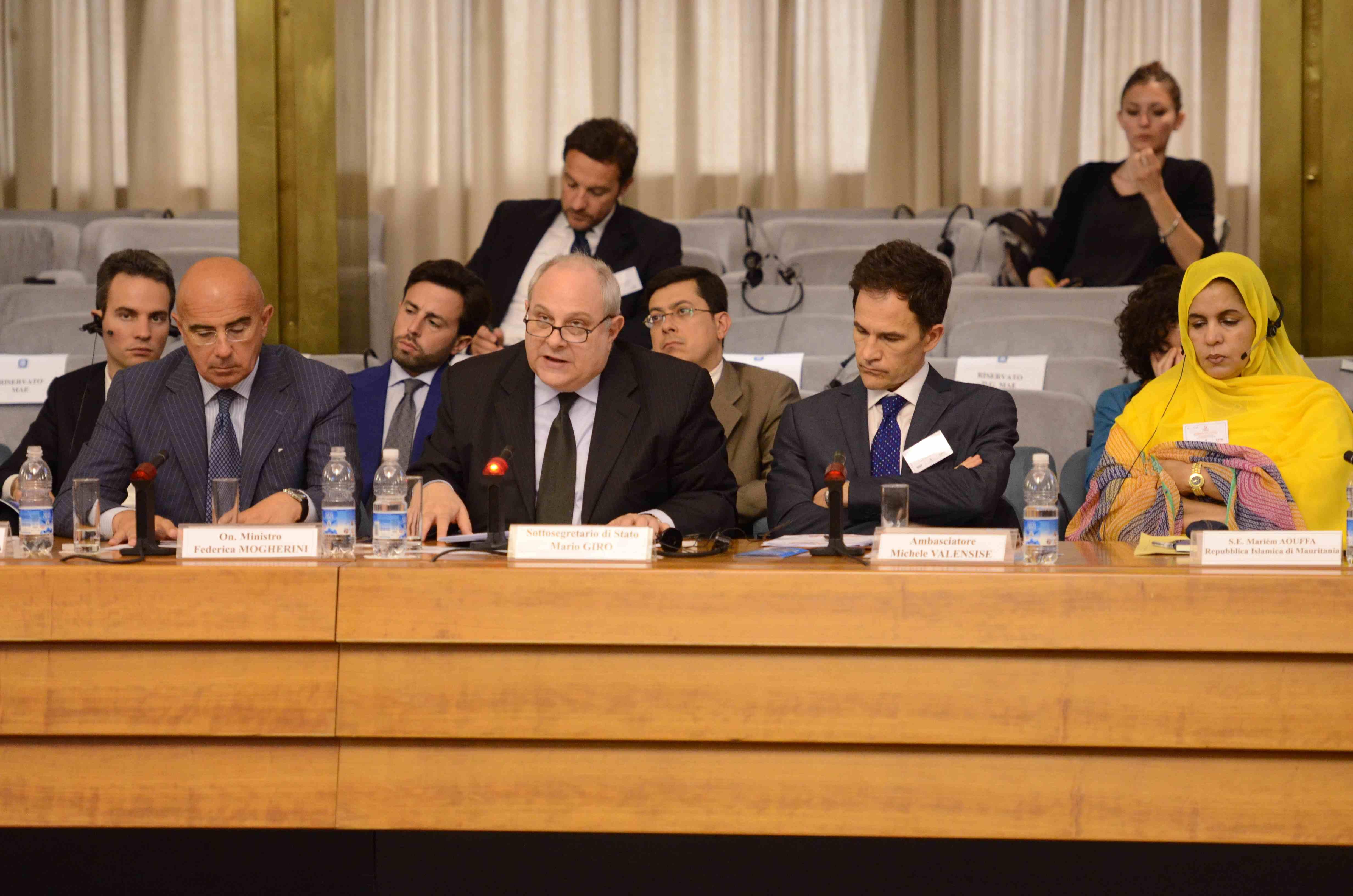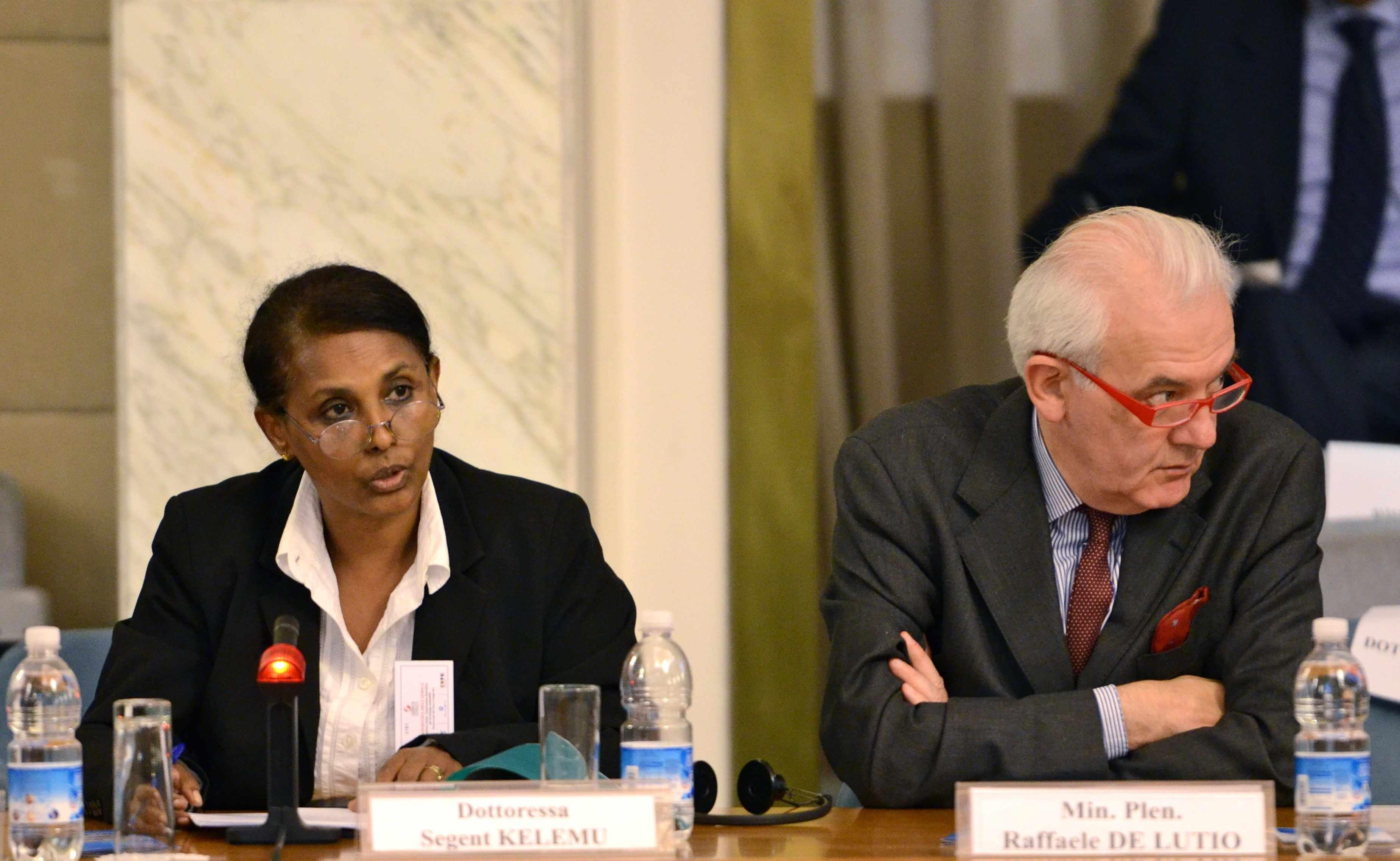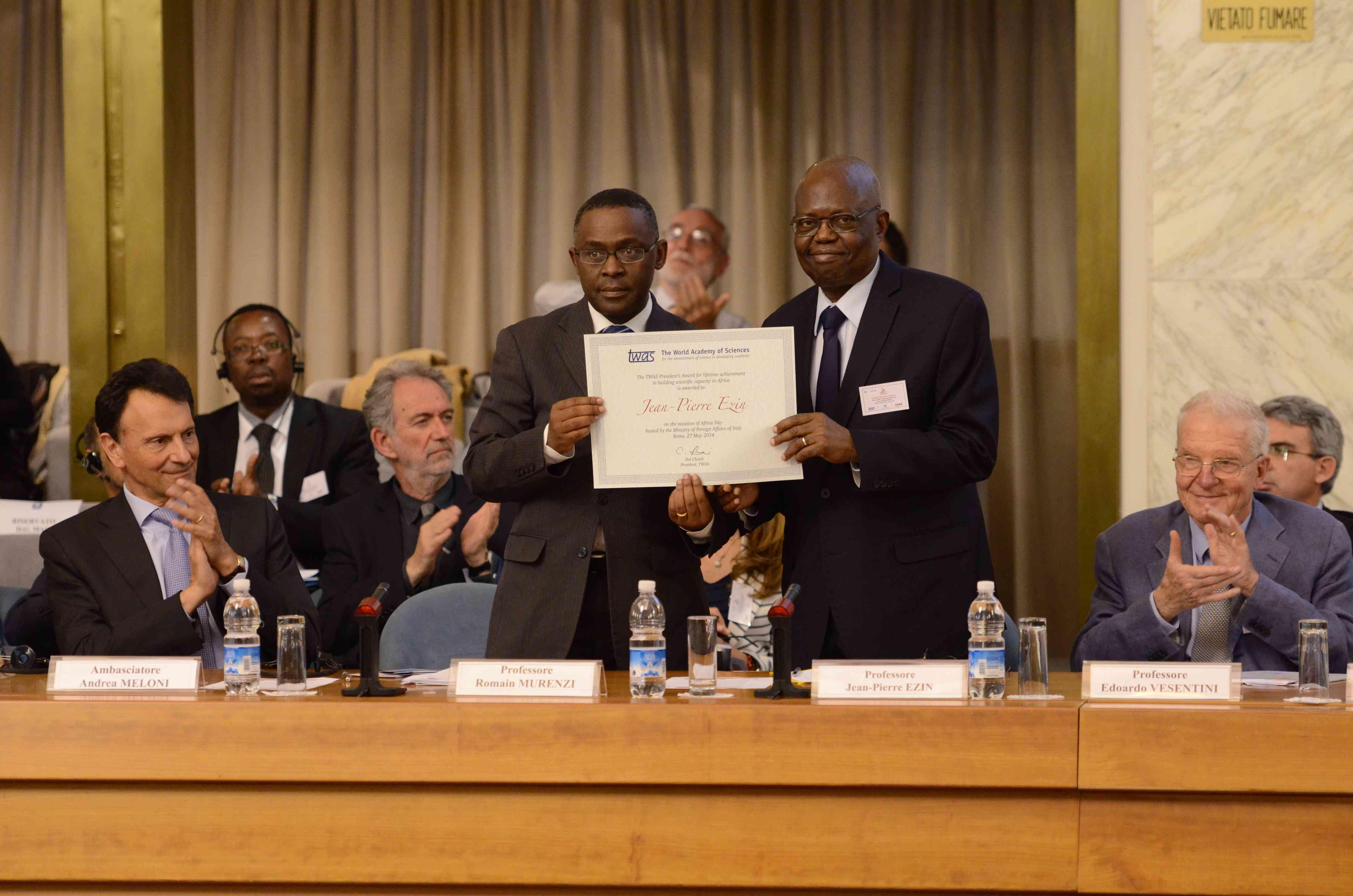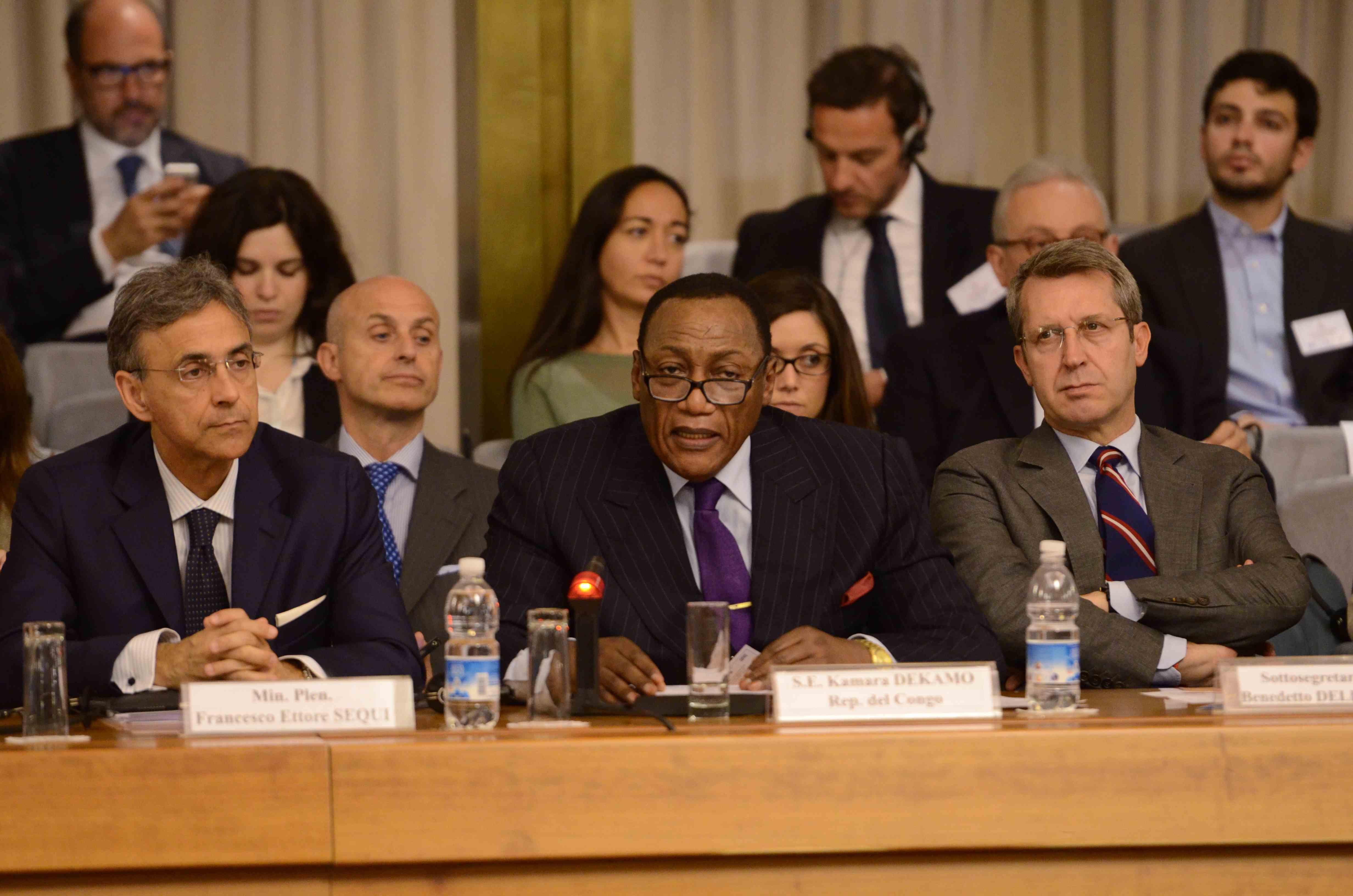High-ranking representatives from the Italian government and the African diplomatic corps convened in Rome to confirm a common vision: That Italy and Africa should work toward human prosperity and political stability in Africa by cooperating on science, good governance and economic development.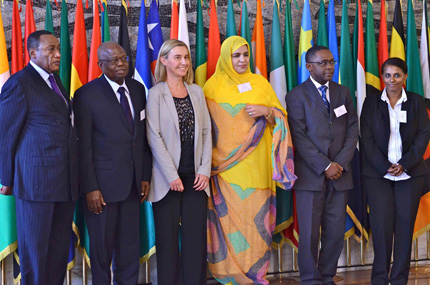
Attaining these goals requires time and patience, but the partnership between Africa and Italy – built through decades of cooperation on health, education, food security and water management – shows a way to achieve it. And TWAS was a featured guest at the annual Africa-Italy Day, fitting for its long-term role as a bridge between the cultures.
"Italy wants to be part of the virtuous dynamism of the African continent by making the most of an historic presence that has already contributed to the social growth and infrastructure of Africa," Italian Foreign Minister Federica Mogherini said in her opening speech. The elegant high-level event was held 27 May at Farnesina palace, headquarters for the Italian Ministry of Foreign Affairs (Ministero degli Affari Esteri, or MAE). High-ranking African diplomats, members of the Italian Parliament, academic representatives, scientists, business and trade representatives and experts on African themes – more than 120 people altogether – attended the event.
Among the African diplomats were H.E. Mamadou Kamara Dékamo, the Congo-Brazzaville Ambassador to Italy since 2000 and the Minister of Health and Population in the government of Congo-Brazzaville from 1997 to 1999. In his speech, Dékamo emphasized the importance of the Africa Day because Africa, he said, is the cradle of humankind. He urged the international community to take action against civil turmoil’s that is troubling nations such as Mali, the Central African Republic and Somalia. Dékamo also complimented the Italian government for the election of Africa-born Cecile Kyenge as the Italian Minister for Integration, a choice that " ... witnesses at the national and international level that Italy is a multiethnic nation, where living is wonderful."
Mogherini was introduced to the audience by Secretary-General Michele Valensise, who chaired the event. In the Italian delegation were also Minister Roberto Cantone, director of Bilateral and Multilateral Scientific and Technological Cooperation Unit, MAE Undersecretary Mario Giro, and Edoardo Vesentini, professor emeritus at the Accademia Nazionale dei Lincei and a TWAS Fellow since 2001.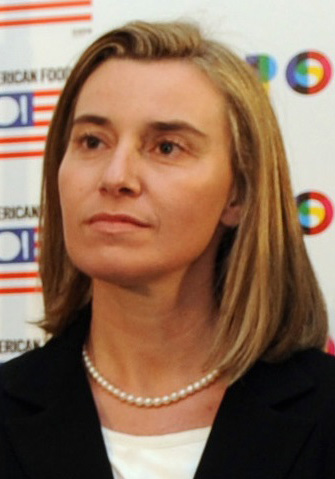
The Africa Day, as Mogherini explained, is part of the Italy-Africa Initiative through which Italy intends to strengthen its interface with the African continent. This year the event was dedicated to science cooperation for sustainable development. The event has also marked the 51st anniversary of the formation of the Organization of African Unity (OAU), which has been later renamed the African Union (AU), in 2002.
Mogherini praised the vibrant energy of the African continent, where education programmes are becoming more substantial, birth and infant mortality are decreasing and many nations are experiencing increased prosperity, as their Gross domestic product (GDP) proves. She announced her intention to organize the first edition of the biennial Italy-Africa ministerial conference in the first half of 2015, in Turin.
Marièm Aouffa, Mauritania's interim ambassador to Italy - speaking on behalf of Mohamed Ould Abdel Aziz, president of Mauritania and current chair of the AU – agreed that Africa is a rich and young continent with remarkable growth rates and tremendous potential. But, she said, agriculture and food security must be placed at the heart of its further development.
Africa blends light and shadow. It's a place where foreign direct investment has increased by more than 80% during the past decade, but people still flee from many African nations in an attempt to escape terrorism and civil conflict. It holds 10% of world's oil stocks and 8% of gas stocks, but has poor access to the Internet and accounts for only about 2% of the world's research papers. However, Africa nurtures a scientific community that strives to set in motion transformative practices and to invest in scientific education.
TWAS has been playing a prominent role in Africa's development, and that was reflected in the Rome event. The Academy's delegation included Executive Director Romain Murenzi; Jean-Pierre Ezin, professor at the Institut de Mathématiques et de Sciences Physiques (IMSP) de l’Université d’Abomey-Calavi, Benin; and Segenet Kelemu, a 2011 TWAS Prize winner and now the director of the International Center for Insect Physiology and Ecology (icipe), based in Nairobi, Kenya. Filmmaker Nicole Leghissa was also among TWAS's representatives, as the author of the TWAS/RAI-TV documentary "Seeds of Science" on links between TWAS, it's home city of Trieste, Italy, and African scientists.
Murenzi, Ezin and Kelemu each gave the audience a vivid personal perspective on African science. Murenzi retraced the origins of the Academy and its evolution until the present time. He mentioned TWAS's Founding Fellows, Pakistani physicist and Nobel Prize winner Abdus Salam, Thomas Odhiambo from Kenya, former TWAS Executive Director Mohamed H.A. Hassan of Sudan and chemist Lydia Makhubu from Swaziland, whose inspired vision helped the establishment of the Academy back in 1983.
Also, none of t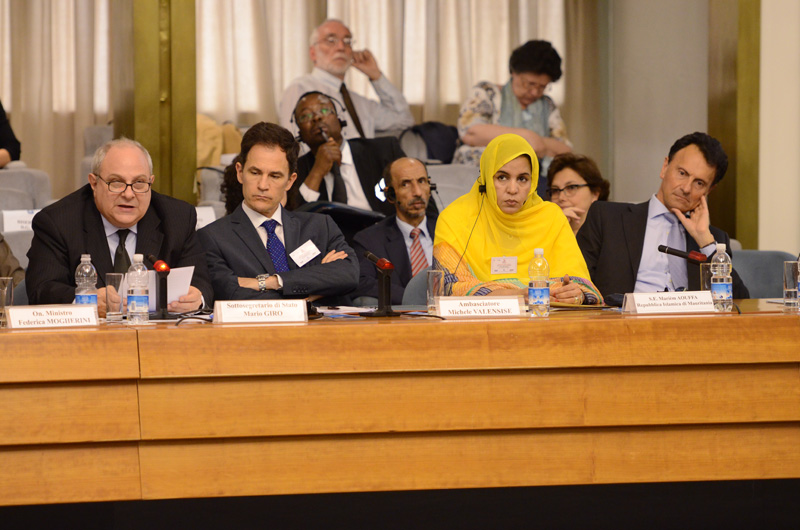 he targets that the Academy has hit over three decades would have been attained without Paolo Budinich and Antonino Zichichi’s vigorous action in early years. The two physicists, both TWAS Fellows, were instrumental in connecting the early Trieste System to Rome and in building science in developing countries.
he targets that the Academy has hit over three decades would have been attained without Paolo Budinich and Antonino Zichichi’s vigorous action in early years. The two physicists, both TWAS Fellows, were instrumental in connecting the early Trieste System to Rome and in building science in developing countries.
Murenzi gave the audience the measure of TWAS’s activity and summoned the impact that the Academy is having on Africa. Between 1987 and 2013, he noted, TWAS awarded 471 research grants worth $4.2 million dollars in sub-Saharan Africa; from 2004 through 2013, it awarded 605 PhD and postdoctoral fellowships.
The Academy is now the linchpin of interactions among science academies, world-class research centres and organizations that support women in science, such as Organization for Women in Science for the Developing World (OWSD). TWAS's role, Murenzi explained, is also vital on a relatively new field like science diplomacy. In partnership with the Italian Ministry of Foreign Affairs, TWAS is taking a global leadership role in this field, fostering the adoption of science diplomacy strategies and promoting workshops and public events.
"We are in a moment of transformation. Clearly, the partnership between Africa, Italy and TWAS has been extremely productive," Murenzi said. "Even with so many signs of recent progress and hope for the future, we must remember that Africa faces continuing challenges."
Among these challenges, Murenzi mentioned hunger and the consequences of climate change. But, as he added, there are also reasons for optimism in the continuing efforts that leaders make to promote science in the south.
As an example, he cited Ezin, the commissioner for Education, Science and Culture, the Economic Community of West African States (ECOWAS) in Abuja, Nigeria. Ezin was among the leading voices in the African Union Commission to promote the creation of a Pan-African University (PAU) in 2008. Two years later, the African Union Assembly of Heads of State and Gove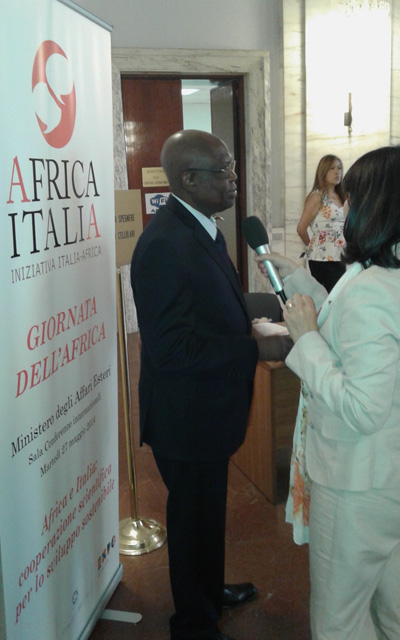 rnment formally decided to establish the Pan-African University, which is now a hub for post-graduate training and research network in five regions, each with a different specialization.
rnment formally decided to establish the Pan-African University, which is now a hub for post-graduate training and research network in five regions, each with a different specialization.
During a ceremony, Murenzi conferred on Ezin a special award in recognition of his lifetime achievement in building scientific capacity in Africa.
Kelemu, born in Ethiopia, is the first woman to serve as the icipe director general. She was a winner of the L’Oréal-UNESCO For Women in Science 2014 Award and the first woman from her region to attend what was then Ethiopia’s only university. She has been a driving force in African research, and was recently listed by Forbes Africa as one of the 100 most influential women in Africa.
"Several generations of people around the globe have learned to pity Africa as a continent of hunger and povery, conflict, illiteracy and malnutrition," Kelemu t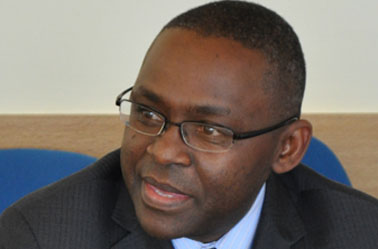 old the audience. "And yet Africa is not a continent to pity." Despite its challenges and contradictions, she added, Africa has the world's youngest population and the highest concentration of arable land, plus advancing use of the Internet and mobile phones. "That's why solutions for many of our problems are literally around the corner," she said. "Through science, discovery and technology, we can enhance the value of our natural resources." Then Kelemu gave the audience her recipe for modernization of Africa: Investing in information and communications technology, health care and agriculture, but also educating farmers to become entrepreneurs.
old the audience. "And yet Africa is not a continent to pity." Despite its challenges and contradictions, she added, Africa has the world's youngest population and the highest concentration of arable land, plus advancing use of the Internet and mobile phones. "That's why solutions for many of our problems are literally around the corner," she said. "Through science, discovery and technology, we can enhance the value of our natural resources." Then Kelemu gave the audience her recipe for modernization of Africa: Investing in information and communications technology, health care and agriculture, but also educating farmers to become entrepreneurs.
"Seeds of Science", a TWAS-RAI Friuli Venezia Giulia co-production, was screened at the end of the Africa Day. "Seeds of Science' tells the stories of TWAS Prize winners Zeyaur Khan and Segenet Kelemu; PhD fellowship winner Vitalis Wafula Wekesa; and research grant awardee Peterson Guto. With passion and enthusiasm, the four scientists describe how TWAS has supported their efforts to improve farm production and provide clean water in Kenyan communities.
In his concluding remarks, Undersecretary Mario Giro praised the Trieste system, for its international impact. And he confirmed the Italian government's commitment to support Trieste's international scientific institutes. And he set a bold agenda for the future. "The Trieste scientific cluster is a common heritage, and a resource for Italy," Giro said. However, " ... this resource needs to be further promoted and valued worldwide, because it holds the potential capacity to solve international problems, hence problems that impact on Africa and on the relationships between Africa and Italy."
Cristina Serra


